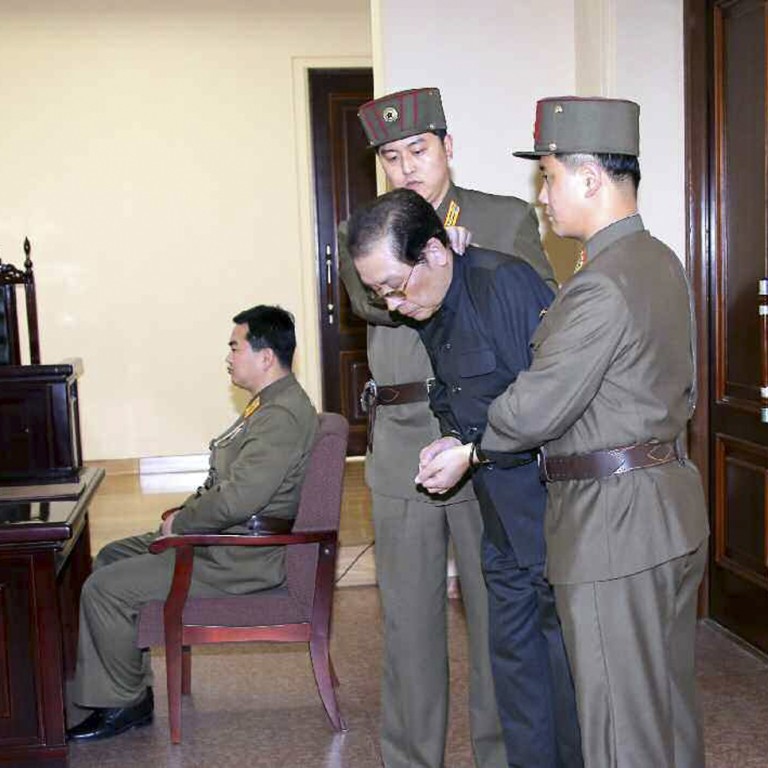
New | Deadly purge of Jang could usher in greater instability in North Korea
Benjamin Charlton says Jang's brutal end and speculation over its causes will feed paranoia
Kim Jong-il's death in December 2011 made his brother-in-law Jang Song-thaek the most powerful man in North Korea, the alleged puppetmaster of the pudgy, giggling boy now on the throne. Two years later, state media announced Jang's execution for an implausibly long and lurid list of crimes, the most heinous being conspiracy to usurp his nephew and rule the country himself.
Facing the murk of Pyongyang politics, we resort to speculation as to what went wrong for Uncle Jang and what it shows. Could it be that Kim Jong-un has finally rid himself of a constraint he chafed under - or rather that a rival has neutralised his greatest champion and protector? Does the purge bode well for the regime's stability, demonstrating that a ruthless young Kim is consolidating power and proving shrewder than a cynical world expected - or does it bode ill, signifying elite conflict so intense that it has spilled into the open and turned lethal? Should we read the purge as a sign of Kim Jong-un's confidence - or might he have overreached?
Such speculation about the causes of the purge - about what it signifies - are a dead end for now. Nobody outside North Korea knows. Nobody can. Even the most seasoned North Korea hands are split on the verdict, so if the rest of us are to believe the experts then we will have to flip a coin. But, facing uncertainty and high stakes, prudence demands that we prepare for the worst.
What if, instead of taking the purge as our end point and looking backwards to guess at explanations, we instead start with what we know and look forward? Take the purge not as an indicator of risk but as a source of it. We can perhaps speculate more helpfully about the purge's effects, if not its causes.
What we know for sure is that, for the first time in decades, one of the country's most senior leaders has been humiliated before the nation and reportedly killed. What consequences might flow from this development alone?
Foremost, it will be interpreted as a precedent that implies nobody is safe. It throws out the unwritten rules of court politics and gives the country's topmost elite reason, in principle, to fear for their lives. This alone raises an ominous possibility - that powerful people may be put in positions where they feel they have nothing to lose from such desperate measures as conspiracy or defection.
In particular, Jang's men, who are probably numerous, senior and experienced, will perceive a lethal threat and may resort to extreme pre-emptive measures to protect themselves. Whoever is now running the show (not necessarily Kim) will have no choice but to purge them to pre-empt their pre-emption. Regardless of who moves first, the situation is unstable.
Beyond the principal actors, the gruesome example made of Jang creates incentives pulling in different directions - a destabilising dynamic. Some it will intimidate into extreme caution, dampening initiative in a country in dire need of fresh ideas.
It seems likely to feed paranoia and factional tension. Yet it also shatters old certainties, and the ambitious may sense openings to advance their careers and ideas. Jang's removal could clear the way for new blood to replace the gerontocracy Kim Jong-un inherited from his father, not necessarily cleanly and not necessarily resulting in wiser policies.
The accusations against Jang referred to a number of major policies the regime pursued under Kim Jong-il. Pinning them on Jang offers some scope - should Kim Jong-un seize the chance - to break with his father's legacy without implying that Kim Jong-il himself was at fault. Kim Jong-un's ancestry is, after all, his sole claim to legitimacy, so any aspersions on the father necessarily undermine the son.
Much as the survivors will try to distance themselves from Jang's supposed crimes, the incident still tarnishes the regime's image. Exposure of one leader's depraved and megalomaniacal exploits will naturally arouse suspicions as to who else might be doing it.
More seriously, the public U-turn on Jang's integrity calls into question the infallibility of eternal president Kim Il-sung, the fount of regime legitimacy. How can the Great Leader and his family have been so myopic as to let somebody so evil get so close?
We can reasonably anticipate that the speculation sparked by the drama of Jang's purge internationally will be matched by speculation in North Korea, from where the facts are not necessarily any less murky. Uncertainty creates anxiety, rumours spread easily and panic can take hold - a risk to which state and military personnel won't necessarily be immune.
But the converse is dangerous, too. That Kim Jong-un appears to have broken with tradition, however brutally, casts him as a dynamic leader with his own agenda. This could nurture expectations of change, which implicitly suggests the possibility of something better. Rising expectations can be dangerous if they are not fulfilled.
